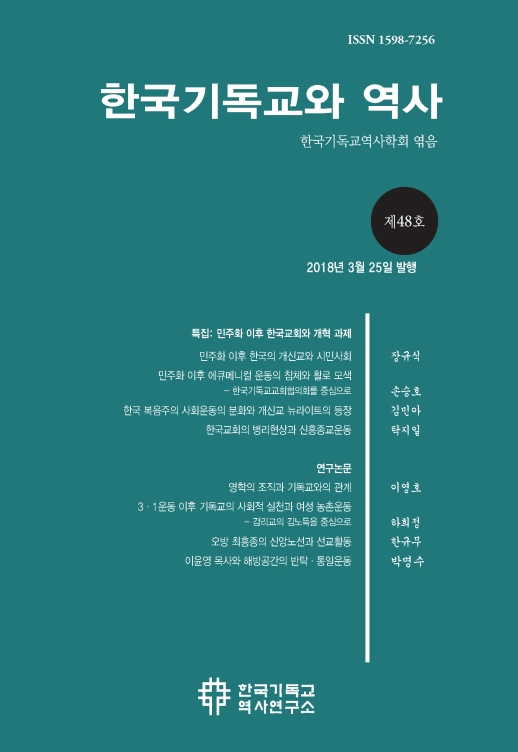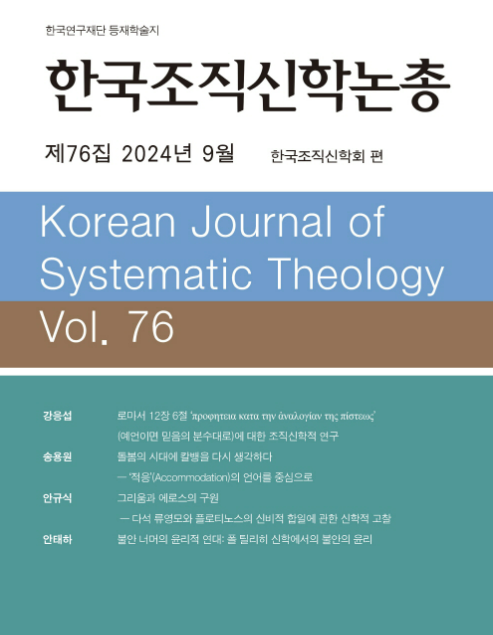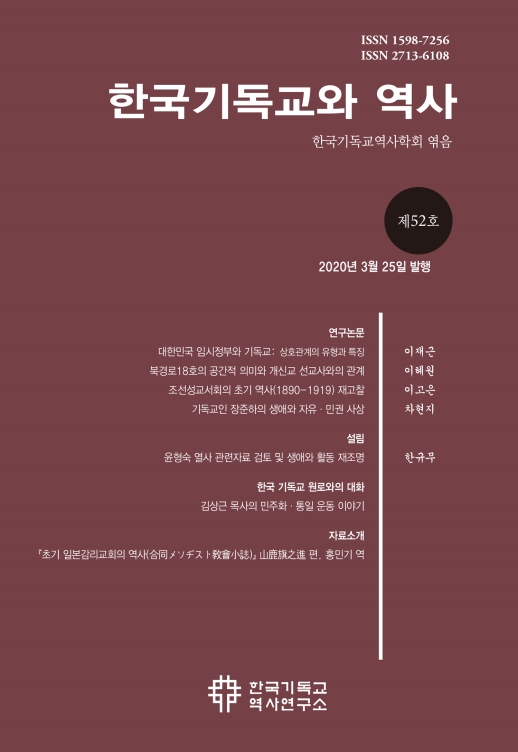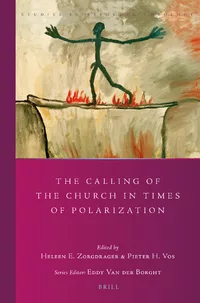이 글의 목적은 한국교회의 병리현상이 기독교계 신흥종교운동들의 발흥에 끼친 영향을 분석하는 것이다. 이를 통해 종교개혁 500주년과 민주화운동 30주년을 맞는 한국교회의 개혁 방향을 모색하는 것이다. 연구 대상은 사회적 논란이 되었던 기독교계 신흥종교운동들로 제한하며, 시기적인 범위는 1987년 6월 항쟁으로부터 종교개혁 500주년을 맞는 2017년까지에 초점을 맞춘다. 단 논의의 전개를 위해, 한국전쟁 이후 기독교계 신흥종교운동의 발흥과 전개과정을 서론 부분에서 개괄적으로 다루려고 한다. 주제에 대한 선행연구는 미미하지만 꾸준한 형편이다. 구한말과 일제강점기 한국 신흥종교운동들에 대한 주목할 만한 연구로는 이강오의 『韓國新興宗敎摠監』(대흥기획, 1992)이 있는데, 불교계와 동학계와 기독교계 신흥종교운동들에 대한 상세한 정보를 제공하고 있다. 일제강점기 이후 기독교계 신흥종교운동들의 발흥에 대한 현장중심의 연구를 진행한 탁명환의 『한국의 신흥종교: 기독교편』 I-IV(국제종교문제연구소, 1972, 1973, 1974, 1987)가 자세한 관련 정보를 전달해주고 있다. 한국전쟁과 군사정권의 등장은 사회적 불안정성과 반공사상을 이용한 기독교계 신흥종교운동 발흥의 밑거름이 되었으며, 1987년 민주화 이후에는 새로운 상황에 적응하기 위한 신흥종교운동들의 친사회적 활동 변화가 주목된다. 한국교회의 교리적 인정보다 주변 사회의 공신력을 얻고자 하는 방향으로 신흥종교운동들의 활동이 이루어진다. 한편 신흥종교운동들의 영향력이 확대될 수 있었던 것은 한국교회의 병리현상, 즉 신행불일치의 삶과 신앙으로 인한 한국교회의 사회적 고립과도 무관하지 않으며, 이로 인해 한국교회는 개혁주체가 아니라 개혁대상으로까지 비판을 받게 된다. 그리고 이는 한국교회의 기독교계 신흥종교운동들에 대한 대책 마련에 있어서도 부정적 영향을 미치게 된다. 한국교회가 병리현상을 극복하고 신흥종교운동들의 도전에 효과적으로 응전하면서, 교회의 본질을 회복해 나아갈 수 있는 방안의 모색이 필요한 시점이다.
The purpose of this paper is to analyze the influence of pathological phenomenon of Korean church to the rise and growth of Christian new religious movements. This examination emphasizes on the period from 1986 to 2017 and, in the beginning of this paper, the formation of Christian new religious movements after the Korean War is explored to show their socio-historical background. Notably, there have been few but continuing preceding researches, such as, Gang-Oh Lee’s Comprehensive Studies of New Religious Movements in Korea and Myong-Hwan Tark’s New Religious Movements in Korea, I-IV. The Korean War and the military dictatorship were a fertile soil for the rise and growth of the movements and they have tried to make some important changes in their beliefs and practices since the democratization of Korean society in 1986. The formation of Christian new religious movements is deeply related to the pathological phenomenon of Korean church, namely, the imbalance between belief and practice, which causes its isolation. As a result of this phenomenon, there is a serious concern for Korean church nowadays and Korean church is expected to not only respond to the challenge of new religious movements but also reform and restore its identity.






